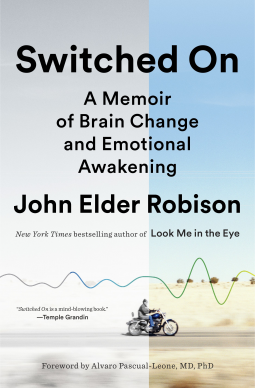Is it really time to write again? I feel like I just posted.
We now have two weeks of summer vacation under our belts, and I could not be more ready for the little gremlins to go back to school.
Okay, so that is not entirely fair. I am enjoying having them home, and I am looking forward to all the fun stuff we can do together. All three are taking swimming lessons out at Camp Able. There is the Children’s Art and Literacy Festival, the Friends of the Library book sale, Movies on the Hill, story times and lego clubs, Dream Night, the art walks and free Tuesday nights at the Grace. We have a Zoo pass so we can go anytime we want, and they have some special exhibits coming up. Honestly, this town may be one of the best to have young children in because there is so much to do for families.
I want to do all these fun things with the kids. I want to take them on adventures, engage their minds, exercise their bodies. I want to sleep in a tent in the yard and catch fireflies and have watermelon seed spitting contests.
What? We live in the South; a certain level of country is to be expected.
They deserve to relax and enjoy their summer; spend time with their family and do entertaining things. My heart aches to give them the world, to be more for them.
Our existing schedule is fairly prohibitive as it is. You can only handle what you can handle, gotta know what you have to turn down, which is why I only mop if there is a spill and have never washed the curtains.
It is hard when there is so much that is required though.
As our current schedule stands, every week we have two hours of therapy on Monday, two and a half on Tuesday, two on Wednesday, two and a half on Thursday, and make-ups on Friday. That is necessary--with the nature of Gabriel’s autism, a summer out of school could result in regression, loss of skill. Even if he is not at risk for regression, his current functional level is considerably below that of his physical age.
Physical therapy comes to teach him staying on task, jumping over obstacles or on one leg, throwing and catching a ball, and walking on the whole of his foot instead of his toes, things along those lines.
Occupational therapy addresses his fine motor and sensory skills--right now, he eats in the infant manner of using the entire fist to scoop, then shoving it in his mouth. He can no longer sit in a highchair and eats roughly one and a half the portion Michael eats, a significant portion of it ending up spilled on the couch and floor, which results in food being dragged from one end of the house to the other as he runs. (We are still working on that). The OT works with him to use a spoon to feed. She also works on dressing and undressing, self-care skills, holding a pencil, plus regulatory sensory activities like compressions, rocking, spinning, and brushing.
This summer, as Gabriel is 7 and still has no consistent form of communication, we are adding a Functional Core Vocabulary regimen in with his traditional Speech. Our Speech Language Pathologist works on getting him any manner of expressing himself--picture exchange, communication devices, signs, and spoken word. It is frustrating to him, but not as frustrating as not being able to get what he needs because we can’t understand him.
FCV is based on the Gemiini program which has had some success teaching nonverbal autistic children some spoken language. It is based on live-labeling and video-labeling common objects--home, cup, Mom, brother, car--that the child will see every day with simple, one-to-two syllable words alone so they can connect the image with the name. Gemiini costs about the same as enrolling Gabriel in community college, so it was outside the realm of possibility for us, but we are participating in a research study--all the benefits, none of the cost.
Except more time.
All of this is stress. It means that my house has basically a revolving door. And I love all our therapists--they are funny, engaging, intelligent, wonderful people that have become part of the family (which is good, as they are likely stuck with us for, oh, the next 150 years). It just wears on you over time.
Add that to the round-the-clock care of these goblins, seven medicine times, the aforementioned swim lessons and fiddle lessons, mealtimes, cooking, cleaning, doctor’s visits, bible class and church, and all the joyous minutiae of childcare, every day is beginning to feel like the grainy dregs of a death march.
I warned you I was dramatic.
The work with REACH, I really do for me. Sure, I do it to better the world that Gabe will grow up. But a large part of it is so that I feel mentally engaged, stimulated. It is energizing to get things done and see the result of your hard work. It was a place I made friends who got what I was going through, could laugh about the things that made us want to cry, bitch about the things we couldn’t change and affect the things we could.Working with REACH has made me happy.
The stress of summer is causing me to buckle just a little. I haven’t been sleeping well, even though Gabriel’s average is higher than historically it has ever been. My temper, already such a fierce beast, is ignited with much less provocation. Worry is gnawing at me constantly.
After the dinner-out-the window experience of 2009, I was diagnosed with Postpartum Depression and Anxiety; we tried a few different medications before we found the right combination that evened me out enough, a nice tepid Andie.
I’m reading a book right now, “Switched On: A Memoir of Brain Change and Emotional Awakening”. It is about this autistic guy, John Elder Robison, that undergoes Transcranial Magnetic Stimulation which gives him the ability to sense others’ feelings. It is so interesting because it makes you think: would normalizing the brains of individuals fundamentally alter who they are, or diminish what they are capable of doing as neurodivergent?


There is this idea that some of the greatest art was created through the mental illness of the artist--Vincent Van Gogh, Kurt Cobain, Sylvia Plath, Robin Williams. They created these tragically beautiful works that were so impactful because we could glimpse in a small way the pain they were feeling. It emotionally resonated with us, the first time we saw “Old Man in Sorrow”, heard “Heart-Shaped Box”, read “The Bell Jar”, watched “Dead Poets Society”. Our hurt cried out, saying “Yes! I have felt that, too!”
The question that is so often asked is: Would they have been able to create these masterpieces had they either been mentally sound or had they been receiving treatment for their condition? Or was their suffering what made the work what it was?
Many rebel against the thought that it was the mental illness that caused the brilliance; they were geniuses in their own right that also struggled with personal demons. Treating them for their condition would not have hindered their genius, but instead enabled them to work with greater clarity.
I went off my medication a year ago because I didn’t like how I was when I was on it. It stole all my extremes, my happiness as well as my sadness. Activities I had previously enjoyed were things I did out of habit than anything else; I almost completely quit reading, never wrote. Really, all I wanted to do was sleep. That is discounting the numerous side effects--eye twitches, dizziness, weight gain, decreased sex drive, drowsiness. My mind was this yawning void where placidity reigned supreme. I didn’t feel like a person. All my creativity was gone, all my sparkle, all my joy. I was sleeping dormant inside an Andie-suit person.
I was lucky; not everyone has the feasible option of going off their meds. Michael certainly had his doubts; he remembered how I was before. Who I was before was tricky though because so much of it was mired under the postpartum depression.There was every possibility that I was treating a condition I no longer had.
The depression did not come back. There was a time of emotional instability--nothing detrimental, I wasn’t a danger to myself or others. Just periods of melancholy, irrationality, irritability. Feelings I hadn’t had to cope with in a long time, had to retrain myself to navigate.
Over time, most of those emotions tempered out. I became rational, reasonable again, or as much as I had ever been. I remembered what I had used to enjoy--watching cooking shows, laying in the sun, playing Bethesda games, and reading every book within reading distance. I had the energy to take the kids places again, stay awake during the day. My life was beginning to look like my own again.
It left the field wide open for the fear to take over.
The panic attacks began when Emerald was diagnosed with diabetes. I remember calling the nurse because I thought there was something really wrong with me--I couldn’t breathe, my chest hurt. I was shaking and my throat, was I choking?
Since going drug-free, the panic attacks have increased in frequency. Probably a normal physical response to the emotional stressors I face. The worst are the ones that wake me at night, sudden and intense and terrifying, born of nothing and soothed by nothing.
A friend in High School taught me a neat trick for dealing with anxiety: learn about what makes you anxious while calm, and you can argue down some of the more unrealistic thoughts when ruffled. He was apprehensive about weather, so he studied meteorology so he knew the conditions that would result in the different weather events like tsunamis and hurricanes. The trick has helped considerably, which is why I have become a relative bottomless pool of seemingly useless information.
It doesn’t really help when your research turns up, “Oh. Well, crap--maybe you should be concerned about that…”.
Little nothings of nothing can set me off. There is this phenomenon of cluster attacks--you have a panic attack; the inducing stimuli is removed, but you are so anxious about having another panic attack that you induce another one. It becomes cyclical, a difficult carousel to step off of.
Would you believe that there are actually benefits to this disorder though?
People with anxiety have fewer fatal accidents and a stronger memory. They perform better in tests (sometimes), can recognize potential threats quicker than people without anxiety, and are more empathetic, fun friends.
God can work all things for good. Mothers of special needs children often experience anxiety, which we sort of need--you have to be poised at any second to intervene. I have had to drop everything and full-out sprint to chase after Gabriel in the mall. With Emerald’s blood sugar, I have to be attentive to her behavior so that I can adjust as need dictates.
When my guard drops, bad things tend to happen. Emerald crashes; Gabriel smears feces on someone’s television while we are at their house, runs out into the street and disappears -poof- instantly into thin air.
No matter how diligent, bad things are going to happen. I can’t prevent it. Can’t protect them from everything.
“Well, you can never let anything happen to him. Then nothing would ever happen to him.”


Great, now I’m taking advice from a amnesic fish. I’m gonna go take a nap. Just a few more things to take care of…
---Andie
No comments:
Post a Comment